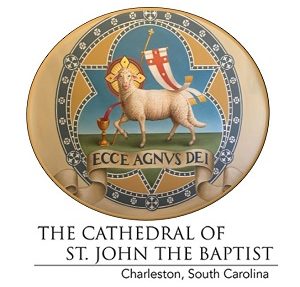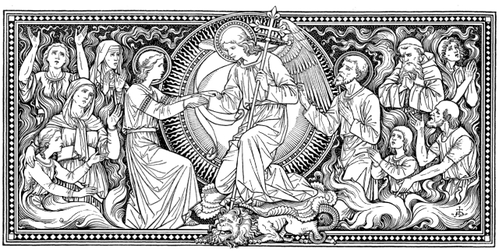All Souls’ Mass
Monday 2 November 2020 9:00 am
The Church provides a great opportunity to help the departed by performing acts of devotion, repentance and charity. These acts provide remission from temporal punishment and are called indulgences. During the Octave of All Saints, (November 1-8) the Church gives us a special opportunity to gain indulgences for the departed.
A plenary or full indulgence, applicable only to the souls in Purgatory, is granted to the faithful who,
1. On any and each day from November 1 to 8, devoutly visit a cemetery and pray, if only mentally, for the departed; or
2. On All Souls’ Day, devoutly visit a church or oratory and recite an Our Father and Creed.
A partial indulgence, applicable only to the souls in Purgatory, is granted to the faithful who,
1. Devoutly visit a cemetery and at least mentally pray for the dead; or
2. Devoutly recite lauds and vespers from the Office for the Dead or the prayer:
Eternal rest grant unto them, O Lord and let the perpetual light shine upon them.
May they rest in peace. Amen.
It is also necessary to fulfill the following conditions for the plenary indulgence,
1. Make a sacramental confession; and
2. Receive Holy Communion; and
3. Pray for the intention of the Holy Father (no particular prayers are prescribed for the intention of the Holy Father, an Our Father and a Hail Mary are appropriate).
These conditions may be fulfilled several days before or after the visit to the Church. A plenary indulgence can only be acquired once in the course of the day; it is, however, fitting that Holy Communion be received and the prayer for the intention of the Holy Father be said on the same day the work is performed.
Prayers for the dead, especially offering the Holy Sacrifice of the Mass for their eternal repose, rests securely on this truth expressed so eloquently by St. Paul: “Christ died and came to life, that he might be Lord of both the dead and the living” (Romans 14:9).
Changes for the Indulgence for the Faithful Departed in the time of COVID
The Apostolic Penitentiary dicastery announced modifications to the Plenary Indulgence for the deceased during the month of November. The decree containing these modifications was signed Oct. 22 “… by the special mandate of His Holiness Pope Francis.”
Plenary Indulgence during November
Due to the coronavirus pandemic and the need to avoid large groups from forming where prohibited, the Plenary Indulgence applicable to the deceased by those who visit a cemetery has been extended beyond the normal dates of Nov. 1-8. This year, the indulgence can be obtained by anyone who visits a cemetery — even if only mentally — on any day in November and devoutly prays for the faithful departed.
For the Feast of All Souls’ Day
Regarding the Plenary Indulgence attached to All Souls’ Day on Nov. 2, this year it can be obtained not only on the preceding or succeeding Sunday, or on the actual Feast day, but on any other day of the month chosen by each member of the faithful. In this case, the indulgence is obtained by “devoutly visiting a church or an oratory,” along with the recitation of the Our Father and the Creed, and the other requirements associated with a Plenary Indulgence.
For the homebound
For anyone who cannot leave their home for various reasons, including COVID-19 restrictions, they too can obtain the Plenary Indulgence by “uniting themselves spiritually to other members of the faithful.” In this case, the condition of being “completely detached from sin” and the intention of completing the other requirements for obtaining a Plenary Indulgence remain. These conditions are Sacramental Confession, reception of Holy Communion and a prayer for the Holy Father’s intentions.
The Decree suggests that such prayer take place before an “image of Jesus or the Blessed Virgin Mary.” Among the various prayers that are recommended are “prayers for the deceased, Morning or Evening Prayer from the Office of the Dead, the Rosary, the Divine Mercy Chaplet, meditating on various Gospel passages proposed for the liturgy of the Dead, or completing a work of mercy by offering to God the suffering and discomforts of one’s own life.”


